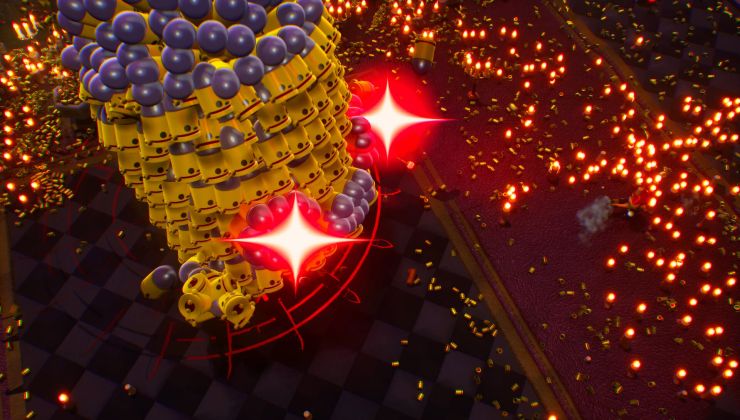Are you running i386 (32-bit) Ubuntu? We need your help to decide how much longer to build i386 images of Ubuntu Desktop, Server, and all the flavors.
There is a real cost to support i386 and the benefits have fallen as more software goes 64-bit only.
Please fill out the survey ONLY if you currently run i386 on one of your machines. 64-bit users will NOT be affected by this, even if you run 32-bit applications.
You can read the discussion that promoted this here.
There is a real cost to support i386 and the benefits have fallen as more software goes 64-bit only.
Please fill out the survey ONLY if you currently run i386 on one of your machines. 64-bit users will NOT be affected by this, even if you run 32-bit applications.
You can read the discussion that promoted this here.
Some you may have missed, popular articles from the last month:
All posts need to follow our rules. For users logged in: please hit the Report Flag icon on any post that breaks the rules or contains illegal / harmful content. Guest readers can email us for any issues.




 How to set, change and reset your SteamOS / Steam Deck desktop sudo password
How to set, change and reset your SteamOS / Steam Deck desktop sudo password How to set up Decky Loader on Steam Deck / SteamOS for easy plugins
How to set up Decky Loader on Steam Deck / SteamOS for easy plugins
32 bit is mostly useful for reviving old hardware, but again, Ubuntu is not particularly optimized to be run on legacy hardware, so you are probably better off with a more lightweight distribution anyway.
So in the end, it is not something I am going to lose sleep over.
That is not how it works. All these Ubuntu flavors are not independent distributions. They are based on the Ubuntu. So if it drops 32 bit support, so do they.
also, the number of installs does not seem negligible at all... with that logic, they should remove support for the rest of the archs with less number of installs... (ie. nearly all of them)
http://popcon.debian.org/
http://popcon.ubuntu.com/
PS: I thought I was out of this, but now i remember my kodi machine is i386... I moved it from ubuntu to debian long ago tho...
Last edited by aL on 29 Jun 2016 at 11:19 am UTC
But who knows... maybe in a few more years I'll be like "What's this old thing? Oh yeah I vaguely remember using that back in the day. Maybe it'll be fun to do a fresh Ubuntu GNU/Linux install on it just for kicks"... and then I'll be oh so sad because I'll discover Ubuntu dropped support for the i386 architecture. That would suck.
Well there's your answer Canonical; better keep it around!
... which I use about once every week ;). But I'm running Debian on it. In fact, I run Debian everywhere except on my cellphone.
I repair computers on a daily basis and frankly, I forgot the last the time I installed a PC with a 32bit OS be it Windows or Linux, even if it came with 2GB of ram.
There is no problem in running 32bit apps in a 64bit system.
The problem is when you try to run a 64bit app in a 32bit system.
Steam is a 32bit application, but it has no problem to run in a 32bit/64bit system.
I dont know if there is any advantage for a 64bit client over a 32bit client.
I remember when wow got its 64bit client, the game ran alooot better.
But thats a game, steam is just a client.
I know, but how do you get to install a i386 if the i386 arch is gone? :)
The first step to install steam on debian is to dpgk --add-architecture i386 && apt update
If you want to run games on Linux, you cannot drop 32 bit software.
And no, it is not possible to ship the 64 bit version in every possible case.
Not to mention, that Windows and macOS are going to support 32 bit applications for years to come!
I've upgraded through three other laptops since then. And yes I do still use the EeePC - as a Shairport server (running Debian). But that's not the sort of thing I'd use Ubuntu for. I doubt the 800x480 screen is even compatible with a lot of modern software. Any kind of production server that's i386-only is surely out of warranty by now.
Incidentally, I ran a Debian derivative on my phone for years - the N900. Sadly it broke a few times, and it got too slow to load any kind of complex web-page so it had to go. But installing Python apps via apt-get on a phone with a hardware keyboard was so good.
So they're not contemplating dropping support for 32-bit software, only support for 32-bit operating systems.